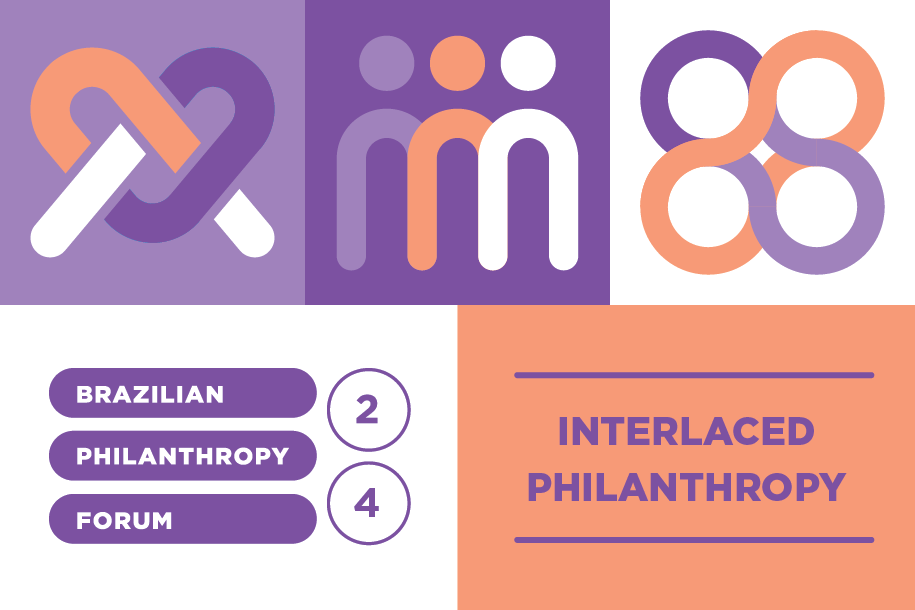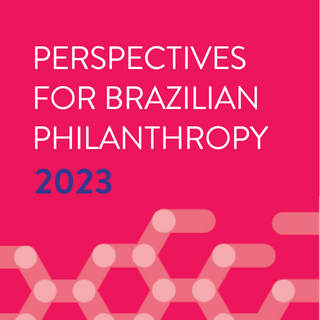By Joana Noffs, project analyst at IDIS
Life stories and experiences trace paths that can help us face complex collective challenges. When it comes to philanthropy, one of the knots faced is the concentration of the resources and the power of decision making in the hands of few. What can we do so that more voices are heard? Should the ones who donate talk about the practice of philanthropy?
These where some of the questions that interlaced the session ‘In conversation with…’ at the Brazilian Philanthropy Forum 2024. Paula Fabiani, CEO of IDIS, invited three women whose philanthropic practices have standout in terms of innovation and collaboration to share a little bit about their paths: Cristiane Sultani, founder of Beja Institute; Ticiana Rolim, founder of Somos Um; and Marlene Engelhorn cofounder of Taxmenow, a movement that advocates for the taxation of large fortunes, who participated through video.
The conversation began with Marlene’s deposition, which brought some provocations that helped shape the debate. A multimillion-dollar heiress, the young Austrian chose to donate the biggest part of the money she received in the “birth lottery”. The decision came after she questioned herself how she could redistribute her wealth, once her country does not tax inheritances – what, according to her, would be the democratic and transparent way of proceeding. The solution she found was to create a council with the participation of 50 people, chosen randomly at first, and then by representative criteria, who were responsible to collectively allocate 25 million euros to chosen causes.
See Marlene’s entire deposition
In her speech, Marlene highlighted the need for long-term changes so that the people being currently supported by the donations can stop depending on the power and wealth holders to establish a collective decision process to allocate the resources.
“Ask the people that are affected by the decision that I take, to be the ones to take the decision. (…) We don’t have to remain classical philanthropists. We can redistribute power, we can step back as wealth holders, learn to listen and become one of many, such as it should be in a democracy”, she states.
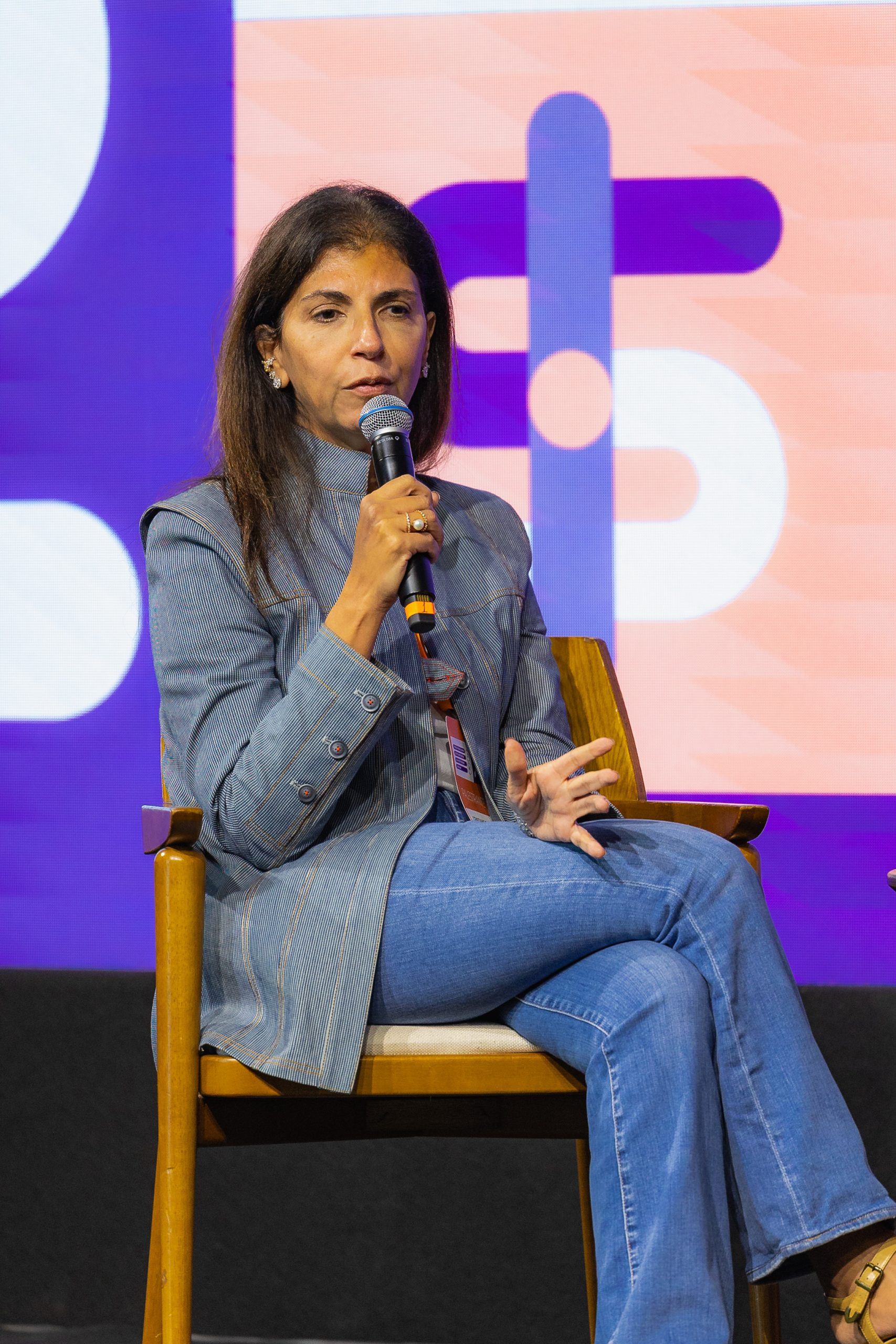 Reinforcing the importance of acting collectively and hearing different actors, Cristiane Sultani talked about how, in her philanthropic path, meeting, listening and collaborating with people were the key aspects that transformed her journey in the field. Since she founded Beja Institute, in 2021, she has tried ‘to philanthrope’, as she likes to say, in a strategic and collaborative way, although she recognizes that she is not always able to do so. The hearing of the sector’s demands, researching global philanthropic tendencies and inspirational success stories helped her along her own process. “I chose to to help the philanthropic sector through a mindset change”, she says.
Reinforcing the importance of acting collectively and hearing different actors, Cristiane Sultani talked about how, in her philanthropic path, meeting, listening and collaborating with people were the key aspects that transformed her journey in the field. Since she founded Beja Institute, in 2021, she has tried ‘to philanthrope’, as she likes to say, in a strategic and collaborative way, although she recognizes that she is not always able to do so. The hearing of the sector’s demands, researching global philanthropic tendencies and inspirational success stories helped her along her own process. “I chose to to help the philanthropic sector through a mindset change”, she says.
Cristiane also uses her time, influence and abilities to support advocacy actions that favor the regulations for philanthropy in Brazil, as well as supporting causes such as racial and climatic justice. She states that the process of hearing throughout the articulation with different actors is a key element for the development of trust.
For Ticiana, the transition from a position at the family business to philanthropy was marked by a constant inconformity with social inequalities and the place she occupied. “I made myself this brave question: what is my role in the world? What can I do with these privileges? How will I be an instrument? How can I use this to serve society?”. Influenced by economist and Nobel Peace Prize winner, Muhammad Yunus, she chose social business as the way to fight against poverty, creating Somos Um, an impact business coordinator. This choice also considered the potential of countless existing projects, with a focus on collaboration.
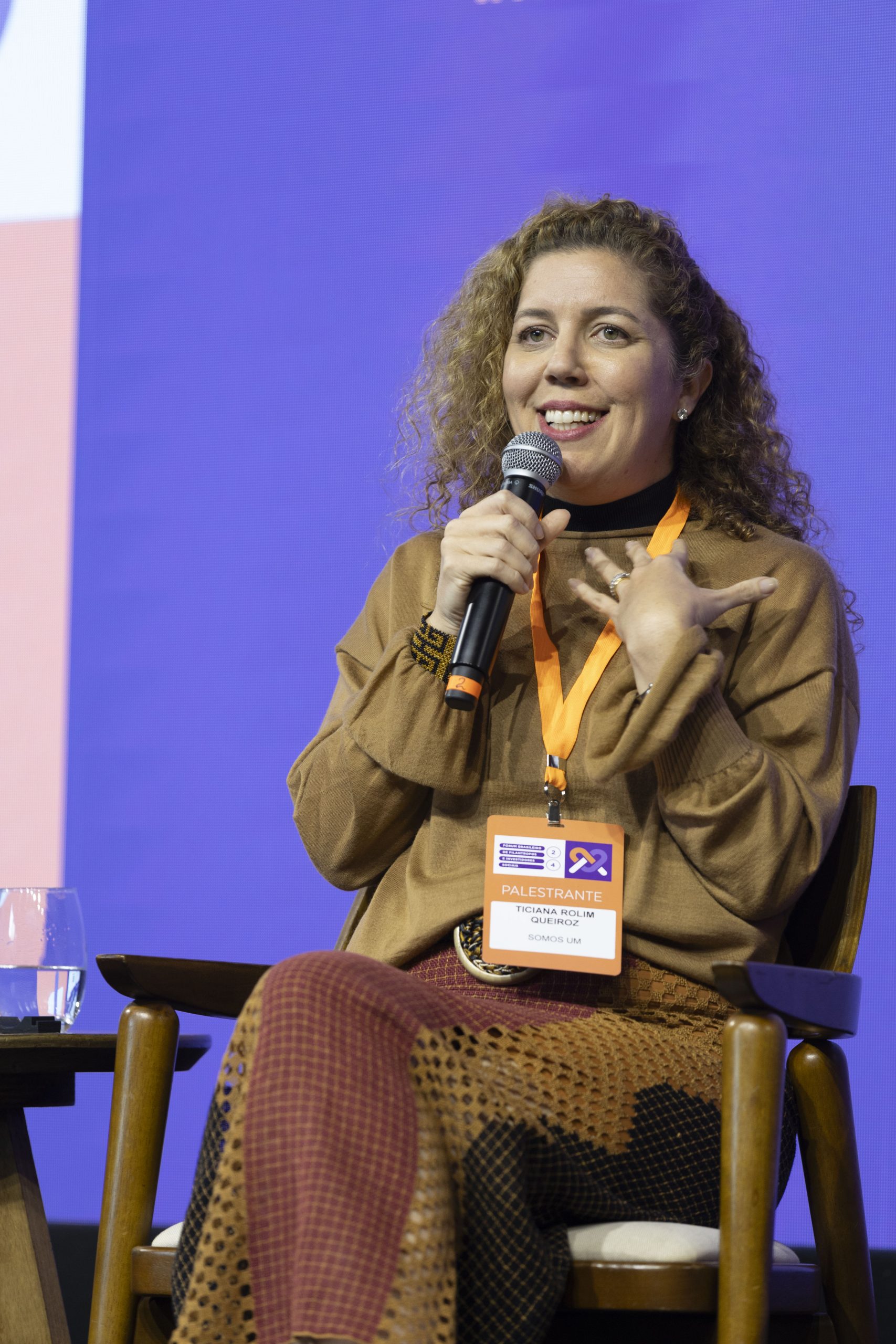
“Nothing about us without us”. This is a motto used by the movements fighting for the rights of people with disabilities, which Ticiana uses to illustrate the importance of including those affected by decisions in the co-creation of solutions and joint action, also aiming to scale its impact. “From this place of privilege, we sometimes arrive in vulnerable territories or in some project full of certainties. And today I say that is arrogant and ignorant on our part.”
Another challenge that Ticiana, from Ceará – a northeast Brazilian state – set to herself was, on one hand, to bring the northeast of Brazil to the center of the philanthropic debate and, on the other hand, to bring the debate about systemic philanthropy to the northeast of Brazil.
“I understood that I can be a bridge, inspiring people in the northeast, where inequality levels are very high, and they many are not questioning it. They are doing charity work, which is important, is urgent, is necessary, but will not solve the social problem because it does not bring social justice, and then we preserve this place of power, which is not ideal, that we want to change and let people free, with the power of choosing for themselves”.
Ticiana cofounded Zunne, which drives social impact businesses in the North and Northeast, in partnership with TRÊ and Yunus Social Business Brazil.
Watch the entire session
In addition to being essential to listen to those affected by the decisions, discussing philanthropy in an open and accessible way was also considered a crucial aspect. Ticiana highlights her role in inspiring and mobilizing people by sharing her experiences and initiatives. Cristiane emphasized the importance of openly discussing issues such as racial equity, promoting transparent narratives to engage more people in the causes she embraces. Marlene, assertive in her positions, is one of the figures who brings to light in public debate criticisms of distributive models that exacerbate and sustain wealth inequalities, as well as environmental, gender and racial inequalities. The stories of the three philanthropists highlight the need for cocreation, participation, and collaboration to produce lasting changes.
Photos by: André Porto and Caio Graça/IDIS.

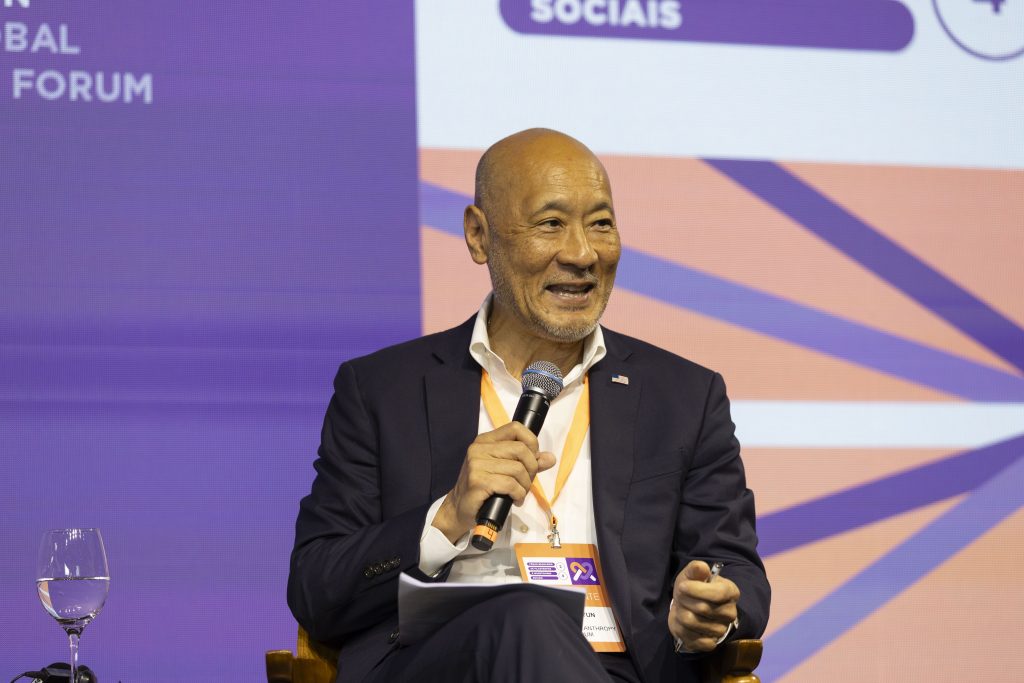
 Amongst the many meanings of the Portuguese polysemic word ‘nós’, one of the most commonly used is to say ‘us’. But the panelist’s speeches pointed out a meaning of the word contrary to this word: the lack of collectivity – maybe the main challenge we must face in contemporary society. Sergio Fausto, General Director of Fundação Fernando Henrique Cardoso, says:
Amongst the many meanings of the Portuguese polysemic word ‘nós’, one of the most commonly used is to say ‘us’. But the panelist’s speeches pointed out a meaning of the word contrary to this word: the lack of collectivity – maybe the main challenge we must face in contemporary society. Sergio Fausto, General Director of Fundação Fernando Henrique Cardoso, says: 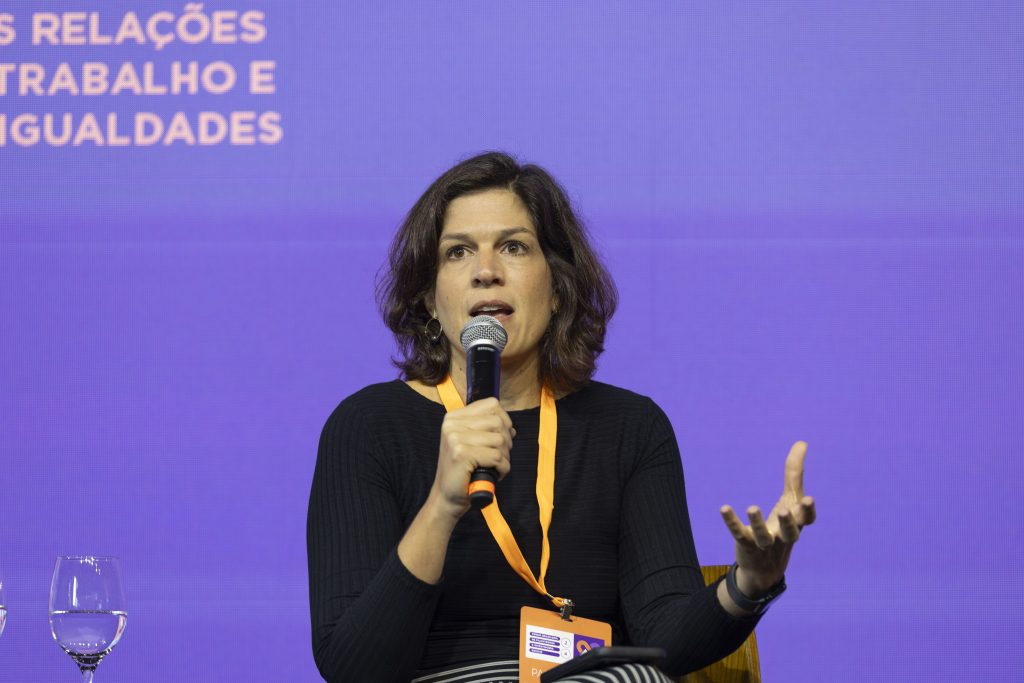
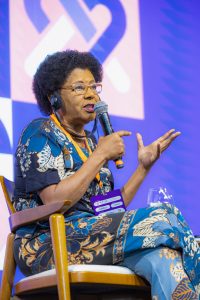 Cida Bento, cofounder of the Center for Studies on Labor Relations and Inequalities, reinforces the importance of collectivity through the establishment of networks, and she goes even further defending a change in the power structure, bringing more diversity and, therefore, plurality of voices and interests to philanthropy. The search for solutions and the decision-making process lacks perspective from the part of the population that has been historically marginalized, the one’s who suffer with social, economic and environmental challenges in the current reality.
Cida Bento, cofounder of the Center for Studies on Labor Relations and Inequalities, reinforces the importance of collectivity through the establishment of networks, and she goes even further defending a change in the power structure, bringing more diversity and, therefore, plurality of voices and interests to philanthropy. The search for solutions and the decision-making process lacks perspective from the part of the population that has been historically marginalized, the one’s who suffer with social, economic and environmental challenges in the current reality.
